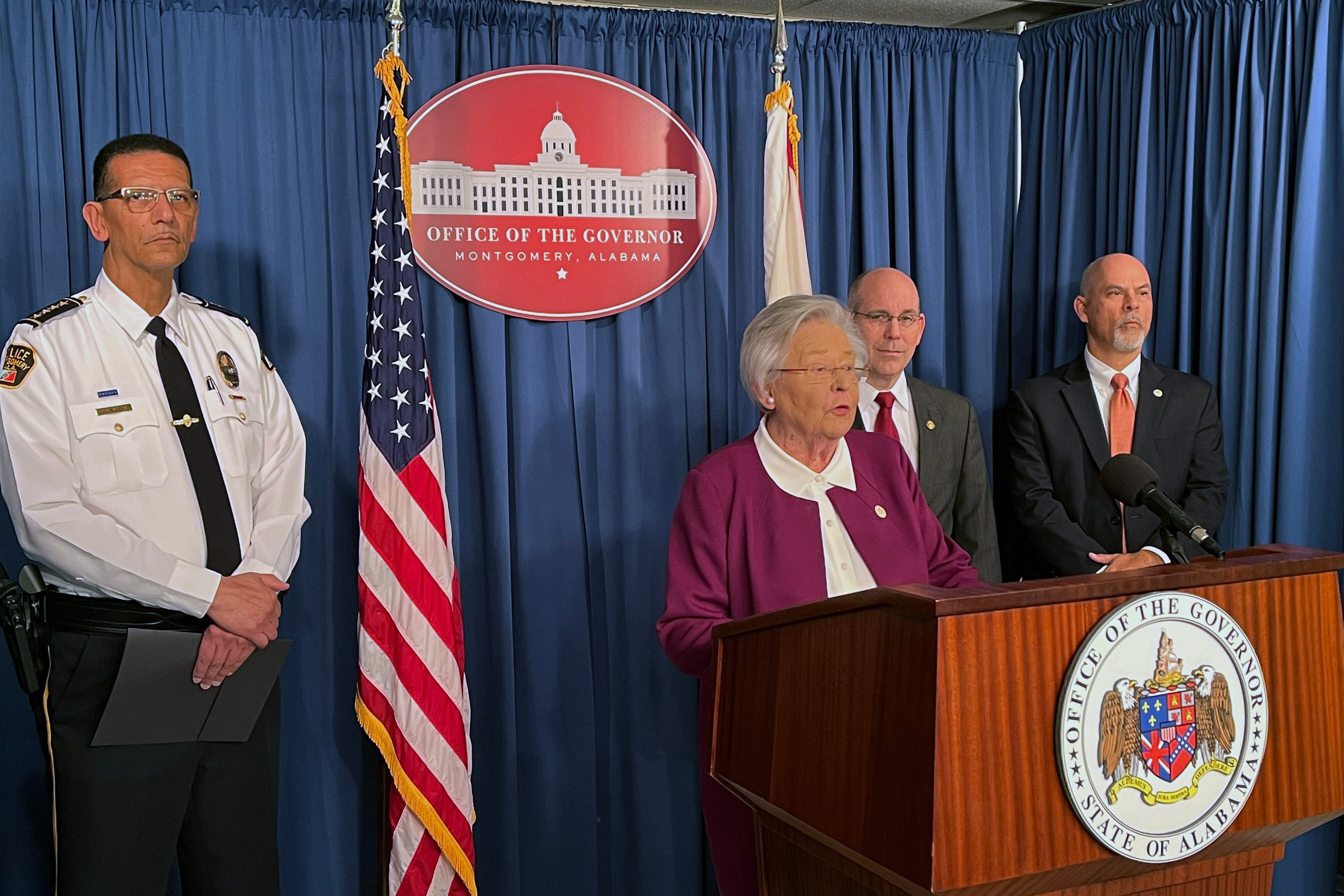On Monday, Governor Kay Ivey issued an executive order to address some of the mounting issues affecting the Alabama Department of Corrections (ADOC).
The State's prison system has come under fire recently for various reasons, including botched executions, escaped inmates, drugs, violence, institutional corruption and poor inmate conditions.
"Under my watch, we will continue doing everything in our power to ensure Alabama is the safest state to live, work and raise a family," Ivey said in a Monday press conference.
"Today, I am proud to announce an important step that will increase our public safety. This morning, I signed an executive order to make improvements to policies within the Department of Corrections, allowing Commissioner Hamm and the good men and women who work for him to be able to better enforce the law within those facilities."
The order pertains to Alabama's correctional incentive time, also called "good time," which allows inmates to receive time off their sentence for not violating ADOC rules.
The new rules would change the categories of violations, which can cause an inmate's "good time" to be diminished or completely dissolved. Previously, good time forfeitures were doled out by individual prison officials, which led to inconsistent practices across Alabama's prisons.
Alabama's "good time" policy came under scrutiny in 2021 after the fatal shooting of Sheffield Police Sgt. Nick Risner. The suspect in the shooting, Brian Lansing Martin of Sheffield, was charged with capital murder in the killings of Risner and William Mealback Jr.
Martin qualified for "good time" and secured his release from prison years earlier after serving a little more than three years of a 10-year manslaughter sentence.
Ivey said that the new rules provide a straightforward, defined framework that prison officials will use to determine good time forfeiture.
"Here in Alabama, we will protect our citizens," she concluded. "We will encourage rehabilitation among our inmates. We will enforce the law. We will ensure justice for victims, and we will always have the backs of our law enforcement,"
The new rules detail violations into four categories:
Low-level violations include gambling, disorderly conduct, possession of contraband, insubordination and any violation of institutional rules.
Medium-level violations include two low-level violations in one year, fighting without a weapon, possession or use of gang-related paraphernalia or symbols, property destruction or theft, refusing to work, curfew violations and possession of a phone.
High-level violations include assault without a weapon, fighting with a weapon, sexual offenses (non-assault), robbery, possession of a weapon, rioting or inciting a riot, encouraging or causing a work stoppage, failure to obey a direct order of an ADOC employee, drug possession, extortion or blackmail, bribery or attempted bribery, absconding from supervision, and attempt to escape without force.
Severe violations include homicide, assault with a weapon, sexual assault, escape and attempt to escape by force.
A low violation will result in the revocation of one good time day, a medium violation is two years, a high violation is three years, and a severe violation will revoke all good time from an inmate.
"The Department of Corrections is tasked with enforcing the Alabama Correctional Incentive Time Act, and I am deeply committed to ensuring public safety and the safety of our law enforcement officers," said ADOC Commissioner John Hamm. "The governor's executive order takes important steps toward improving safety while ensuring our ability to enforce the law."
ADOC is under the microscope for the high level of violence and death in Alabama prisons, with a lingering lawsuit from the Department of Justice (DoJ) and a state investigation into its lethal injection protocol.
Alabama has some of the highest prison death rates in the nation, tying Maine for third place in homicides per 100,000 inmates but falling behind Oklahoma and South Carolina, according to DOJ figures. In overall deaths per 100,000, Alabama is in fourth place behind Mississippi, Arkansas and Louisiana.
In 2020, the DoJ filed a lawsuit against the state of Alabama concerning poor prison sanitation, violence between inmates, excessive use of force from staff and sexual assault.
Since the DOJ began its investigation in 2016, at least 80 prisoners have died by homicide.
To connect with the author of this story, or to comment, email craig.monger@1819news.com.
Don't miss out! Subscribe to our newsletter and get our top stories every weekday morning.










